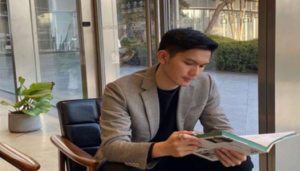Understanding the Basics of Exchange Programs
Becoming part of an exchange student program offers a unique opportunity to immerse yourself in a different culture, learn a new language, and gain a global perspective on your studies. Whether you are in high school or enrolled at a university, understanding the application process and what to expect is crucial.
Choosing the Right Program
First, identify the type of exchange program that fits your educational goals. Programs can vary from a semester to a full academic year and may focus on different subject areas. Make sure the program's curriculum aligns with your academic requirements to ensure the credits you earn abroad count towards your degree at home.
Eligibility Requirements
Most programs have specific eligibility requirements, including a minimum GPA, language proficiency, and prerequisites in related subjects. For instance, if you're interested in studying in Spain, you might need to demonstrate a certain level of Spanish proficiency. Typically, a GPA of at least 3.0 is required, but more competitive programs might demand higher academic standards.
Application Process
The application process for becoming an exchange student involves several steps. You'll need to submit academic transcripts, language test results (if applicable), letters of recommendation, and a personal statement. Your personal statement should articulate why you want to study abroad and how the experience fits into your academic and career goals.

Funding Your Exchange
Understanding the costs associated with exchange programs is essential. While some programs include scholarships or are tuition-neutral (you pay your home institution's tuition), others require you to cover additional expenses such as airfare, living costs, and visa fees. Research funding options like scholarships, grants, and student loans that can help manage these costs.
Preparing for Departure
Once accepted, the preparation phase includes obtaining a student visa, arranging travel, securing housing, and possibly attending a pre-departure orientation. This stage is critical for ensuring a smooth transition to your host country.
Maximizing Your Exchange Experience
While abroad, engage actively with the local culture, participate in campus activities, and build a network of international contacts. This proactive approach not only enriches your experience but also enhances your personal and professional development.
Key Resources
For more detailed guidance on becoming an exchange student, including choosing programs and understanding the financial aspects, click on becoming an exchange student. This resource provides a comprehensive overview that can help you navigate the complexities of studying abroad.
Embarking on an exchange program is an exciting journey that requires careful planning and preparation. By thoroughly researching and understanding the requirements and steps involved, you can make the most of this transformative educational opportunity.